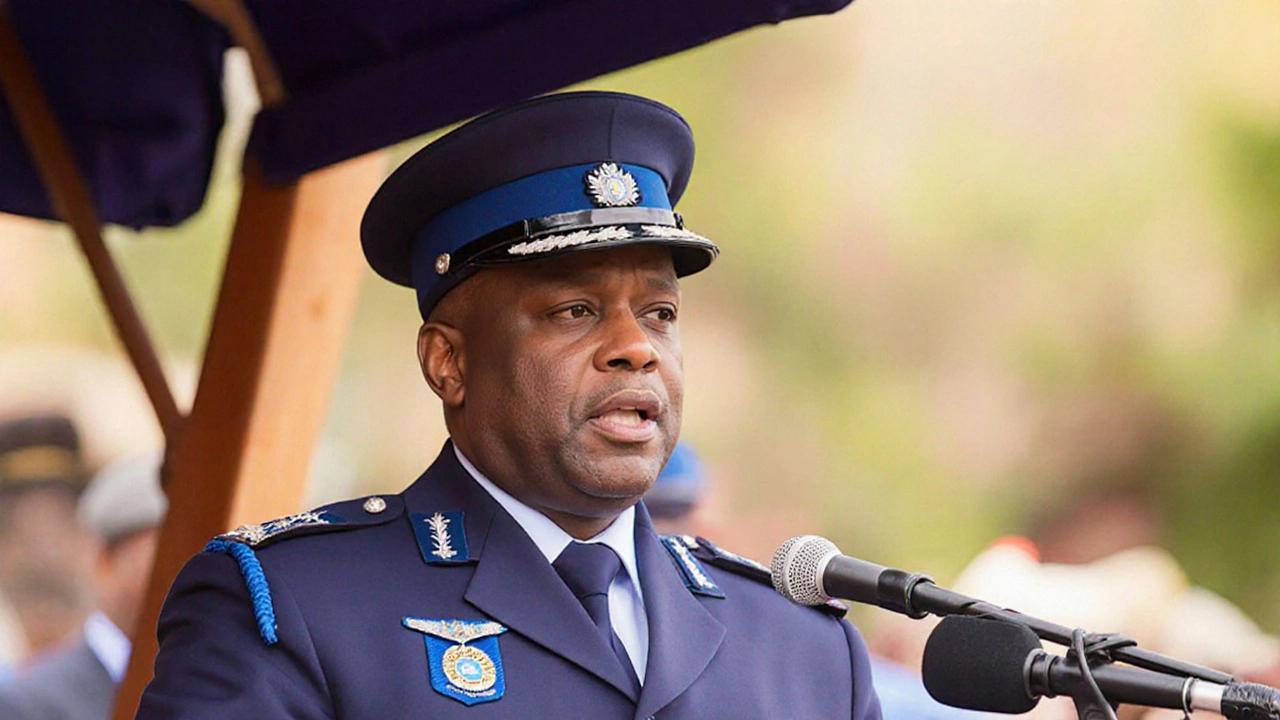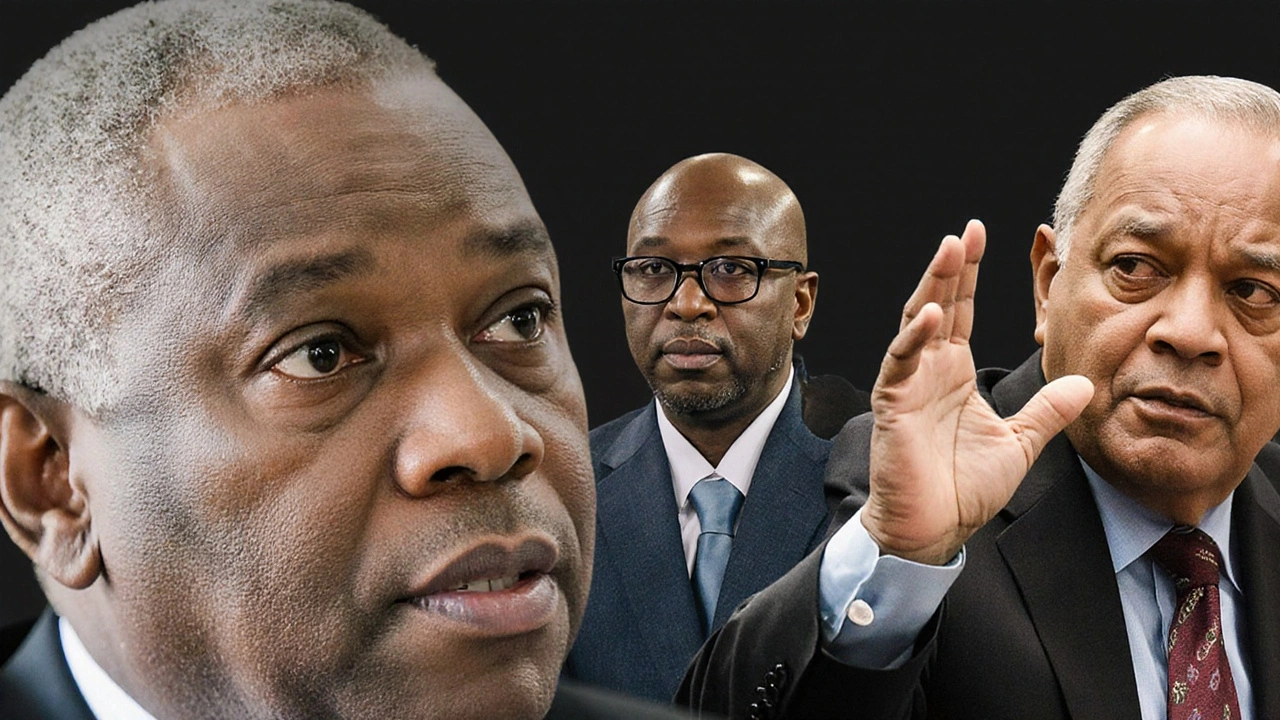
Testimony Highlights
During a packed session in Pretoria, the Madlanga Commission of Inquiry heard that Shadrack Sibiya ordered the transfer of 121 case files from the KwaZulu‑Natal political killings task team (PKTT) to the national police headquarters. The move effectively froze the province’s investigations into a string of politically motivated murders.
Major‑General Petronella van Rooyen, who leads SAPS’s legal division, told the panel that Sibiya acted without consulting KZN Police Commissioner Nhlanhla Mkhwanazi. "It creates a situation where the provincial commission is accountable for matters it does not even know about," she said, adding that the decision eroded the authority of the provincial commander.
National Police Commissioner Fannie Masemola appeared to back up the concerns. She recounted that, shortly after Sibiya’s June 2023 appointment as Deputy National Commissioner for Crime Detection, he began pushing for control over several sensitive units.
- First, Sibiya demanded to take charge of the cold‑case unit, which traditionally reports directly to the national commissioner. Masemola called the request "unusual" and warned him to focus on his core crime‑detection duties.
- Second, he tried to strip Crime Intelligence head Dumisani Khumalo of counter‑intelligence dockets, insisting that detectives should handle them. Masemola argued those files are highly sensitive and should not be opened by any officer outside the intelligence chain.
Masemola summed up her advice with a vivid analogy: "You’ve just been handed an elephant to manage; you can’t be busy looking for a single hair on its tail." She noted that Sibiya was later suspended after being placed on leave, a move that raised eyebrows across the service.

Underlying Power Struggles
The commission’s inquiry is not just about one docket transfer; it’s probing deeper issues of political interference, corruption, and jurisdictional battles within SAPS. The PKTT was set up to tackle a wave of killings tied to local politics, and its work has been praised for uncovering links between crime syndicates and political actors.
When Sibiya removed the dockets, many investigators argued that vital evidence could be lost or delayed. Critics fear that shifting files to Pretoria makes it harder for provincial officers to follow leads, especially when local knowledge is crucial.
Van Rooyen’s testimony highlighted a broader worry: if senior officials can unilaterally reroute investigations, the chain of accountability breaks down. "Provincial commanders need to know what’s happening in their own jurisdictions," she said, warning that ignoring this principle could invite abuse of power.
Masemola’s remarks also shed light on an emerging culture of centralisation. By trying to bring the cold‑case and intelligence units under his thumb, Sibiya appeared to be reshaping the power balance inside SAPS. Some insiders suggest this reflects a wider push from the national leadership to tighten control over politically sensitive cases.
While the commission has not yet ruled on whether Sibiya’s actions were illegal, the testimonies suggest a pattern of overreach. The outcome could have lasting effects on how South Africa handles politically motivated crimes, and whether provincial police can retain real decision‑making power.
As the Madlanga Commission continues its work, the spotlight remains on the tension between national directives and provincial autonomy. The next hearings will likely explore whether other high‑ranking officers have engaged in similar dossier‑shuffling and what safeguards can be put in place to protect the integrity of investigations into political violence.
So let me get this straight - Sibiya’s out here playing chess while the rest of SAPS is still figuring out how to move the pawns? He’s not just overstepping, he’s staging a coup with paperwork. Cold-case unit? Intelligence dockets? Bro, you were hired to detect crime, not curate a personal dossier archive. The elephant analogy? Chef’s kiss. He’s trying to groom the elephant’s whiskers while the whole damn herd is getting poached.
This is why institutions die.
It is, without question, a matter of profound institutional concern when jurisdictional protocols are unilaterally overridden by senior officials lacking the requisite mandate. The erosion of provincial autonomy in matters of investigative oversight represents a systemic vulnerability that, if left unaddressed, may compromise the legitimacy of future prosecutorial outcomes in politically sensitive cases.
Look, I know this sounds like bureaucratic drama, but let’s not miss the forest for the trees - this isn’t just about who moved files, it’s about who’s being silenced. The PKTT was doing real work, uncovering connections between killers and politicians, and now suddenly, the evidence vanishes into a black hole in Pretoria? That’s not efficiency, that’s obstruction. We need to protect the people on the ground who risk their lives for truth, not let some desk jockey in a fancy suit turn investigations into a power play. This is the moment to stand up, speak out, and demand transparency - not just for the cases, but for the integrity of the entire system. We owe it to the victims and their families.
The centralization of sensitive investigations undermines local accountability. Provincial commanders require operational awareness to maintain legitimacy and public trust. Sibiya’s actions, while possibly well-intentioned, created structural ambiguity that invites mismanagement.
Okay, but can we talk about how insane it is that someone who just got promoted thinks they can just snatch up cold-case files like they’re picking up coffee? Like, honey - you don’t get to rewrite the playbook because you got a new title. The PKTT was the only thing keeping these political murders from being swept under the rug, and now they’re stuck in some federal filing cabinet while local detectives are left guessing? That’s not leadership - that’s sabotage with a badge. And honestly? I’m so tired of brilliant people getting sidelined because someone’s ego thinks they know better. We need to protect the ones doing the real work.
THE ELEPHANT. THE ELEPHANT, PEOPLE. HE’S TRYING TO FIND A SINGLE HAIR ON THE ELEPHANT’S TAIL WHILE THE WHOLE TUSK IS GETTING STOLEN. I’M SCREAMING INTO THE VOID. THIS ISN’T A POWER STRUGGLE - IT’S A FARCE. AND SOMEONE’S GETTING MURDERED BECAUSE A MAN WITH A BAD TIE THINKS HE’S THE ONLY ONE WHO CAN HANDLE THE ‘COMPLEXITY.’
Real talk: if you’re in charge of crime detection, focus on crime detection. The cold-case unit and intelligence files aren’t trophies - they’re tools that need the right hands. Sibiya’s move didn’t streamline anything; it just made everything slower and more secretive. Provincial teams know their regions - their informants, their patterns, their history. Taking files away from them is like removing a surgeon’s scalpel and giving them a spoon. You’re not helping. You’re hindering.
Wait - wait - wait - he tried to take the cold-case unit?!?!?! And the intelligence dockets?!?!?! And nobody stopped him?!?!?! This is a trainwreck - a bureaucratic trainwreck with bodies piled up in the background - and now we’re just sitting here like it’s normal?!?!?! This isn’t just incompetence - this is a crime against justice - and someone’s gonna pay - someone’s gonna pay - someone’s gonna pay -
Of course he did. Of course. This is the exact same pattern: overpromoted, underqualified, ego-driven bureaucrat who thinks paperwork is power. He didn’t ‘manage’ anything - he buried evidence. And now we’re supposed to be shocked? Please. This isn’t a scandal - it’s a feature. The system rewards this kind of arrogance. The real question isn’t whether he overstepped - it’s why anyone let him get this far in the first place.